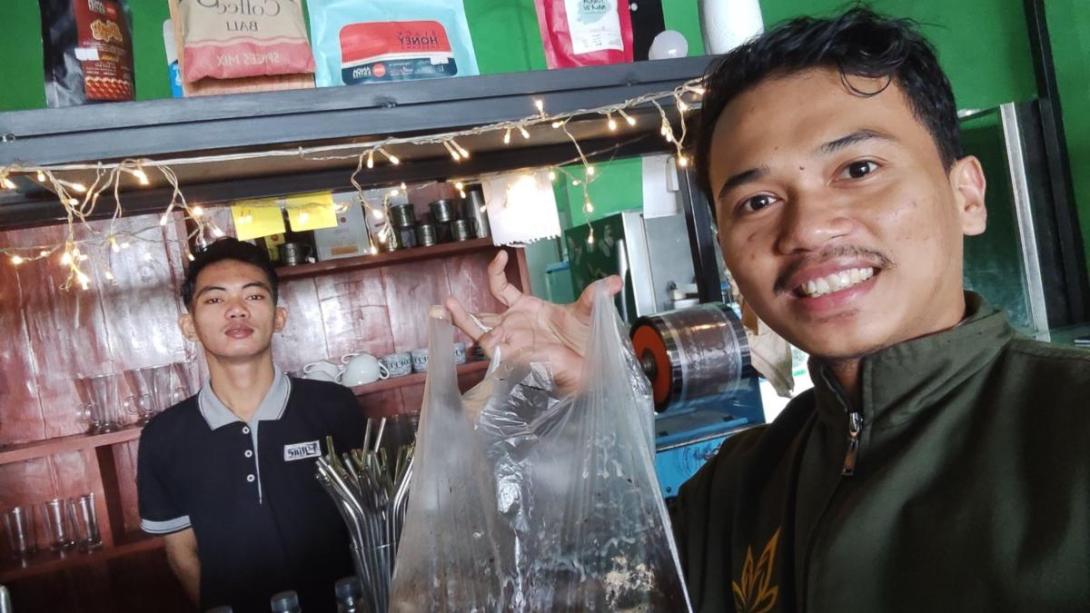
"This project was my first time using mechanical tools like a grinder and hand drill—I learned that hard skills and dedication can come together to build something meaningful."
The aim of the project is to To reduce the amount of organic waste going to landfill by training local communities in organic composting and developing the foundations for a composting social enterprise.
Main Objectives:
- Plan a local composting system through co-design method.
- Prototype and test a local composting facility.
- Investigate the feasibility of a community based organic waste management program and the opportunities for composting initiative.
- Involve the public in composting activities, including but not limited to the organic waste collection and processing.
The Celebes Kompos Initiative, implemented by Zulkhaidir Purwanto through WastEducation (Yayasan Daur Timur Nusantara) in Makassar, South Sulawesi, aimed to reduce organic waste going to landfills by piloting a community-based composting system. Initially designed to replicate a successful composting model from Waiheke, New Zealand, the project had to pivot due to the COVID-19 pandemic. Instead of community composting, it shifted toward household-based composting, emphasizing co-design with local women and testing a prototype anaerobic composter made from recycled plastic drums.
The project followed four main objectives: planning a composting system via co-design with 10 women, building and testing a prototype household composter, evaluating the feasibility of a community composting program, and involving the public in composting activities. The team engaged 22 people directly (13 women), including volunteers, business representatives, and households. Organic waste was collected from households and six local businesses, including food stalls and a furniture workshop. In total, 59 kg of organic waste was processed, and both liquid and solid compost were produced and distributed back to participants and local farmers.

Despite challenges such as volunteer dropouts, pandemic-related restrictions, and mechanical learning curves, the project achieved meaningful outcomes: enhanced community awareness about organic waste, practical composting skills, and the development of a working composter model. It also laid the foundation for a future social enterprise by testing the sale and replication of the composter. Zulkhaidir gained valuable leadership and technical skills, and the project was promoted through Instagram, the WastEducation website, local media, and university communities, showcasing its potential for scaling and replication.

